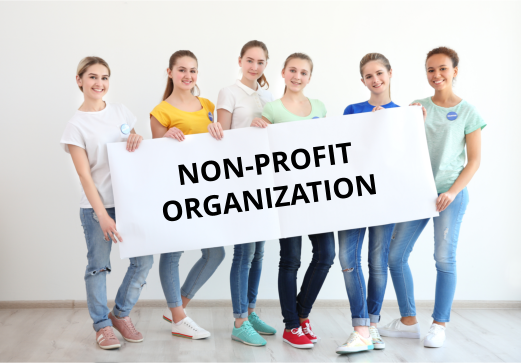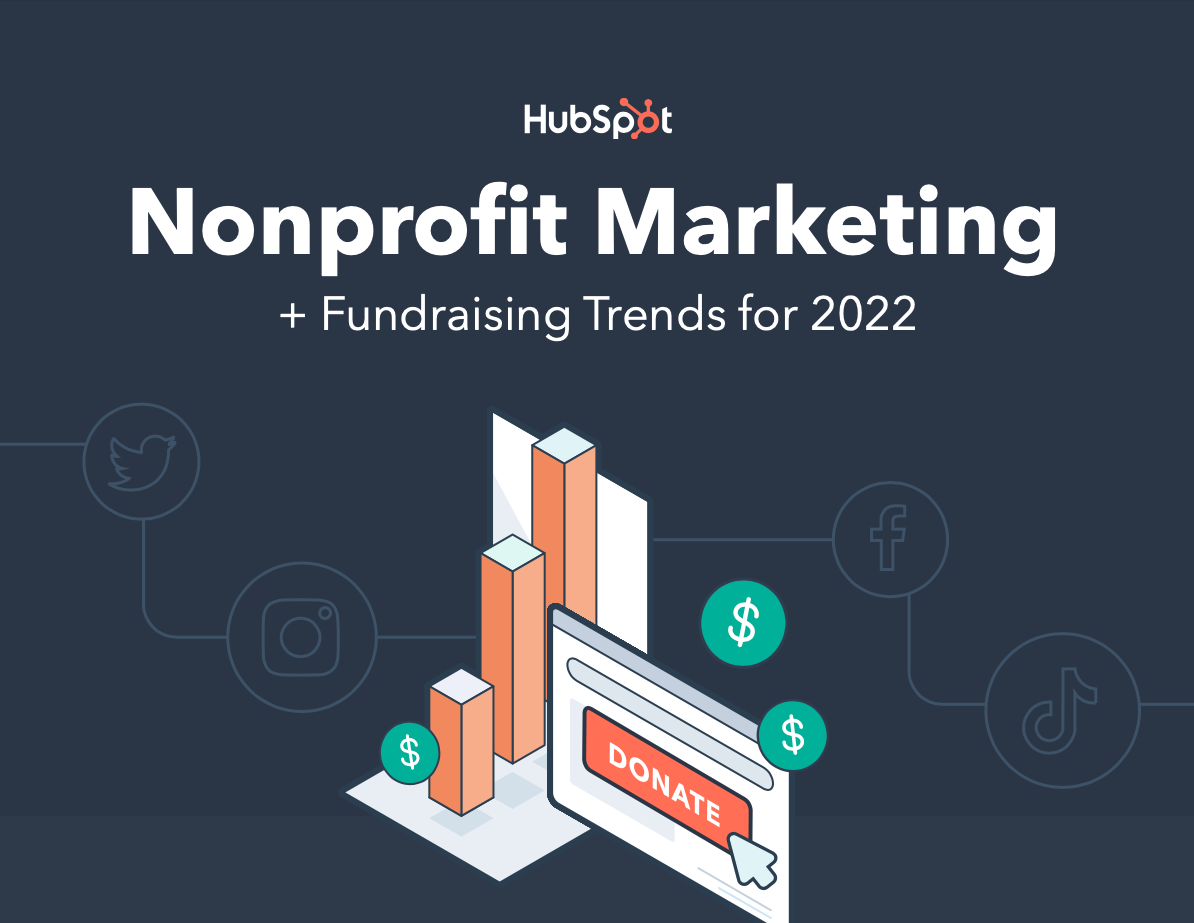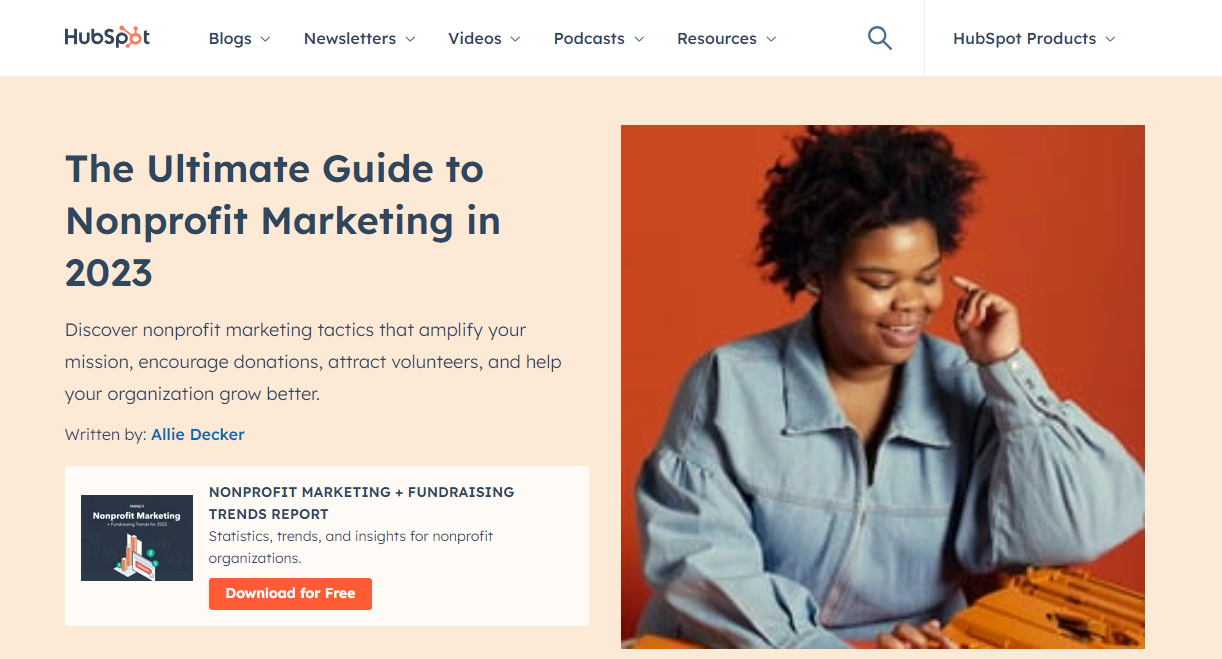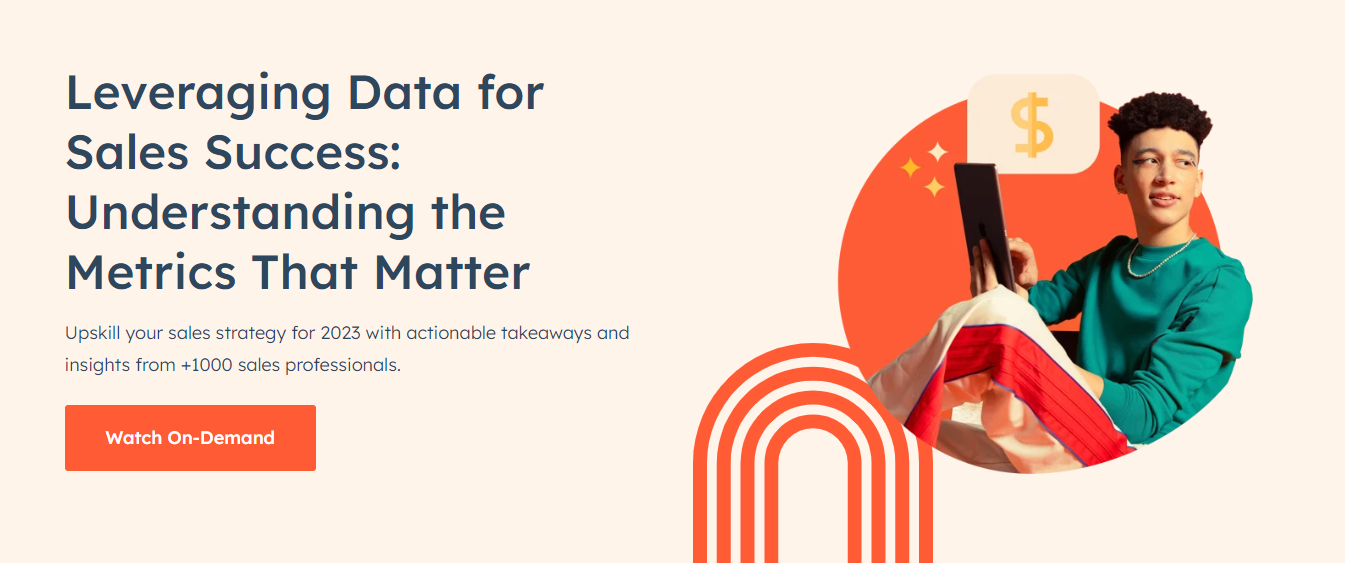What is HubSpot?
HubSpot is a powerful marketing platform that has been transforming the way organizations engage with their audience, and this impact extends beyond just businesses. Nonprofit organizations, with their missions centered around social causes, can significantly benefit from effective marketing strategies. Marketing plays a vital role in helping nonprofits reach their goals, whether it’s raising funds, increasing awareness, or attracting volunteers.
Nonprofits, however, face unique challenges when it comes to marketing and fundraising. One of the most prominent obstacles is their limited budgets and resources. Unlike businesses that have profit margins to invest in marketing, nonprofits often rely on donations and grants, which may not always be sufficient to fund extensive marketing campaigns. Consequently, they struggle to gain visibility and reach their target audience effectively.
Another challenge is connecting with the right audience and conveying the organization’s mission compellingly. With numerous causes competing for attention, nonprofits find it difficult to stand out and resonate with potential supporters. Effective communication becomes crucial for connecting emotionally with donors and volunteers, making them feel invested in the cause.
The purpose of this blog is to explore how HubSpot, with its comprehensive marketing and customer relationship management (CRM) tools, addresses the specific needs of nonprofit organizations. By examining HubSpot’s features and understanding its approach, nonprofit professionals can discover ways to optimize their marketing efforts and overcome the challenges they face.
Get 10-15% discount on HubSpot’s services! Contact Us.
Marketing Challenges for Nonprofit Organization
Nonprofit organizations encounter a range of challenges in their marketing and fundraising endeavours.
Firstly, financial constraints often limit the resources available for marketing campaigns. Unlike businesses that can allocate a percentage of their revenue to marketing, nonprofits must operate within strict budgets, making it challenging to run extensive and impactful campaigns.
The impact of limited budgets is also felt in the recruitment of skilled marketing personnel. Hiring experts who can create and execute successful marketing strategies may not always be feasible for nonprofits, leaving them at a disadvantage in a competitive digital landscape.
Moreover, reaching the right audience can be a significant hurdle. Nonprofits often struggle to target their message effectively, which results in reduced donor engagement and support. Additionally, conveying their mission and impact compellingly requires creativity and a strong understanding of their target audience’s preferences and motivations.
To succeed in their endeavours, nonprofits need tailored solutions that account for their unique challenges, and this is where HubSpot comes into play.
HubSpot for Non-Profit Marketing
HubSpot offers a comprehensive suite of marketing and CRM tools designed to support organizations of all kinds, including nonprofits. With its user-friendly interface and powerful features, HubSpot enables nonprofits to streamline their marketing efforts and make a more significant impact on their target audience.
At the core of HubSpot’s offerings are its marketing tools, which encompass a wide array of capabilities such as email marketing, social media management, content creation, and automation. Nonprofits can leverage these tools to communicate with their donors, supporters, and volunteers more effectively.
One of the key benefits of using HubSpot is its focus on inbound marketing. Unlike traditional marketing methods that push messages onto audiences, inbound marketing attracts potential supporters by providing valuable content and engaging experiences. This approach aligns well with the values of nonprofits, as it allows them to build meaningful relationships and foster a loyal community of advocates.
Furthermore, HubSpot’s CRM system plays a crucial role in helping nonprofits manage donor relationships efficiently. The CRM allows nonprofits to track interactions, analyze donor engagement, and personalize communications, enabling them to build stronger connections with their supporters.
By providing a centralized platform for all marketing and CRM activities, HubSpot eliminates the need for nonprofits to juggle multiple tools and systems, making it a cost-effective and time-saving solution.
Need help with HubSpot implementation? Contact Us.
How to Create a Nonprofit Marketing Plan
Creating a marketing plan for your nonprofit organization using HubSpot for Nonprofits involves several key steps. HubSpot is a powerful tool that can help you streamline your marketing efforts, track your progress, and engage with your audience more effectively. Here’s a step-by-step guide to help you get started:
1. Set Clear Objectives
Setting clear and well-defined objectives is the foundation of any successful marketing plan for a nonprofit organization using HubSpot for Nonprofits. To start, it’s essential to have a crystal-clear understanding of what your organization hopes to accomplish through its marketing efforts. These objectives should align closely with your nonprofit’s mission and overarching goals.
First and foremost, consider the goal of raising awareness. Increasing the visibility of your nonprofit and its mission within your target audience and the broader community is often a primary objective. This could involve making more people aware of the issues your organization addresses, as well as educating the public about your programs and initiatives.
Secondly, many nonprofit marketing plans aim to boost donations. Fundraising is often a critical element of sustaining a nonprofit’s operations and expanding its impact. Your marketing objectives might include increasing the frequency and size of donations, attracting new donors, or encouraging existing supporters to become recurring donors.
2. Understand Your Audience
Understanding your audience is a critical foundation for any successful marketing plan, and it’s no different when using HubSpot for Nonprofits.
To start, you must thoroughly identify your target audience and create detailed buyer personas. These personas are essentially fictional representations of your ideal supporters, donors, or volunteers. The aim is to humanize your audience, allowing you to better connect with them on a personal level.
Start by conducting thorough research to gain insights into your audience’s demographics, psychographics, and behaviour. What age group are they in? Where do they live? What are their interests and values? What challenges or pain points do they face that your nonprofit can address? By delving into these questions, you can craft more tailored and effective marketing messages.
3. Conduct a SWOT Analysis
Conducting a SWOT analysis is a critical step in creating a comprehensive marketing plan for your nonprofit organization using HubSpot for Nonprofits. This strategic evaluation involves identifying and assessing your organization’s internal strengths and weaknesses, as well as the external opportunities and threats in your operating environment.
Firstly, let’s delve into your organization’s strengths. These are the internal attributes that give your nonprofit a competitive advantage or set it apart from others in the sector. When analyzing your strengths, consider aspects such as your dedicated team of volunteers and staff, your unique mission or cause, any proprietary programs or services, and your existing donor base. HubSpot can be immensely beneficial in leveraging these strengths by helping you showcase them effectively to your audience, ultimately strengthening your brand and engagement efforts.
On the flip side, weaknesses represent areas where your organization may be falling short or facing challenges. These could encompass limited resources, outdated technology, or gaps in your marketing strategies. HubSpot can be a powerful tool for addressing weaknesses by providing a unified platform for managing and optimizing your marketing efforts. It can streamline workflows, automate routine tasks, and provide valuable insights to help you bridge these gaps and improve efficiency.
4. Content Strategy
Creating a comprehensive content strategy is a pivotal step in your nonprofit organization’s marketing plan, especially when utilizing HubSpot’s capabilities tailored for nonprofits. Your content strategy serves as the foundation upon which all your marketing efforts will be built. It’s crucial to align your content strategy with your specific objectives and the unique needs of your target audience.
Start by identifying your nonprofit’s key goals. Are you looking to raise awareness about a particular cause, drive donations, recruit volunteers, or promote upcoming events and campaigns? Understanding these objectives will guide the type of content you create and the messaging you convey.
5. Lead Generation
Lead generation is a critical aspect of any nonprofit’s marketing strategy, and HubSpot offers a suite of powerful tools to facilitate this process. By effectively utilizing HubSpot’s lead generation capabilities, your organization can capture valuable contact information from various sources, including website visitors, event attendees, and social media followers.
One of the primary ways to generate leads through HubSpot is by implementing forms on your website. These forms can be strategically placed on key pages of your site, such as donation pages, volunteer sign-up pages, or content-rich blog posts. By encouraging visitors to fill out these forms with their contact details, you can start building a database of potential supporters and engage with them further.
6. Email Marketing
In the contemporary digital age, email marketing remains an integral channel for businesses seeking to connect with their audience. When executed with precision and insight, email marketing can foster strong relationships, drive sales, and amplify brand awareness. HubSpot, recognized as one of the leaders in the inbound marketing sphere, offers a robust suite of email marketing tools that can enhance and simplify the process, allowing businesses to reach their target audience effectively.
7. Social Media Marketing
In today’s digital age, social media marketing stands as a pillar of any comprehensive marketing strategy. Understanding its nuances and intricacies is imperative for businesses aiming to establish a prominent online presence. HubSpot, as a leading inbound marketing and sales software platform, provides a suite of social media tools tailored to streamline and optimize the efforts of modern businesses.
One of the primary features of HubSpot’s social media tools is the ability to manage and schedule social media posts. Consistency is key in social media marketing, and by automating the scheduling process, businesses can ensure that they are consistently engaging their audiences without the constant manual intervention of logging in and posting. This not only saves time but also allows for a strategic and well-thought-out content calendar.
8. SEO Optimization
In the ever-evolving digital landscape, the importance of search engine optimization (SEO) cannot be overstated. SEO plays a pivotal role in determining a website’s visibility, driving organic traffic, and building online credibility. As businesses vie for the top spot in search engine results pages (SERPs), harnessing the right tools to streamline this process becomes paramount. This is where HubSpot’s SEO tools come into play.
HubSpot’s suite of SEO tools is designed to empower businesses to optimize their website content effectively for search engines. It offers a comprehensive platform that allows users to conduct in-depth keyword research, analyze the structure and quality of their content, and get actionable recommendations for enhancement. Instead of taking a one-size-fits-all approach, HubSpot’s tools enable businesses to craft a tailored SEO strategy that aligns with their unique objectives and audience.
9. Paid Advertising
In today’s digital age, the power of paid advertising cannot be underestimated, especially for organizations that want to make a significant impact online. For nonprofits aiming to increase their visibility, foster donor relationships, and drive more traffic to their websites, paid advertising can be an invaluable tool.
One of the standout features to consider is HubSpot’s seamless integration with leading paid advertising platforms, namely Google Ads and Facebook Ads. These platforms have revolutionized the digital advertising landscape, providing organizations with precise targeting options to reach their desired audience.
10. Analytics and Reporting
In today’s data-driven marketing landscape, it’s imperative to have the right tools at your disposal to measure the success of your initiatives and fine-tune them for optimal results. HubSpot, a recognized leader in the inbound marketing arena, offers an array of reporting and analytics features tailored to help businesses understand and analyze the performance of their marketing campaigns in real time.
One of the foundational metrics to monitor is website traffic. By tapping into HubSpot’s dashboard, businesses can gain insights into the number of visitors their site attracts, the pages they frequent the most, and the duration of their stay. Such data can be pivotal in understanding which content resonates the most with your audience and where there might be potential bottlenecks in user navigation.
11. Automation and Workflows
In the era of technological advancements and evolving consumer behaviours, the role of automation and workflows in marketing has become more pivotal than ever. Incorporating automation tools and establishing strategic workflows is essential for any business seeking efficiency, precision, and consistency in its marketing initiatives.
Lead nurturing is a critical process that bridges the gap between potential interest and sales conversion. It involves a series of communications and engagements with prospects to keep them interested and guide them down the sales funnel. Automation comes into play here by allowing businesses to set up triggers and actions that ensure timely, relevant, and personalized content delivery.
For instance, when a potential customer signs up for a newsletter, automation can trigger a welcome email followed by a series of content pieces tailored to that individual’s interests or behaviours. This way, leads receive the right information at the right time, increasing the likelihood of conversion.
12. CRM Integration
Customer Relationship Management (CRM) systems are indispensable tools for modern businesses, particularly for managing and nurturing vital donor relationships. By integrating HubSpot with your CRM, you not only consolidate valuable customer data but also gain a seamless way to track every interaction with your donors. This integration fosters more informed decision-making, enabling organizations to craft personalized outreach strategies, pinpoint areas of improvement, and ensure that no donor feels overlooked
13. Budget Allocation
Financial prudence is crucial in ensuring the longevity and efficacy of any marketing strategy. By wisely allocating your budget across diverse marketing channels and campaigns, you can maximize your reach and influence. This doesn’t just mean splurging on high-performing channels but strategically investing based on performance metrics and ROI. HubSpot’s analytical capabilities can offer insights into which channels yield the best returns, enabling you to refine your spending decisions and get the most out of every dollar.
14. Testing and Optimization
The digital marketing landscape is continually evolving, demanding flexibility and a penchant for innovation. To stay ahead, marketers must adopt a mindset of constant testing and optimization. Employing techniques like A/B testing can unveil invaluable insights into what resonates with your audience. Whether it’s refining an email subject line, tweaking a landing page design, or altering the content of a social media post, every change should be data-driven. HubSpot’s robust testing tools can guide you in this iterative process, ensuring that every iteration brings you closer to marketing perfection.
15. Team Collaboration
Effective collaboration is the cornerstone of any successful marketing initiative. Within the HubSpot ecosystem, teams can work in harmony, with tools designed to assign tasks, track progress, and maintain a unified vision of the marketing plan. This cohesion ensures that there’s a collective responsibility and understanding of the overarching strategy, reducing bottlenecks and fostering a productive environment where everyone is in sync and driving towards common goals.
16. Review and Adjust
Resting on one’s laurels in the world of marketing can lead to stagnation. Hence, it’s imperative to keep a close eye on your marketing plan’s performance. By regularly reviewing results within HubSpot’s reporting module, you can gather deep insights into your strategies’ effectiveness. Such data-driven insights allow for timely adjustments, ensuring that you’re always adapting to the ever-changing demands of your audience and the market.
17. Compliance and Data Privacy
In the age of information, data privacy and compliance have become paramount. As you engage in marketing activities, especially those involving donor or supporter data, it’s crucial to be fully compliant with relevant regulations like the General Data Protection Regulation (GDPR) or the California Consumer Privacy Act (CCPA). Not only does this protect the rights and privacy of your audience, but it also ensures that your organization remains beyond reproach. HubSpot’s platform provides tools and guidelines to help businesses stay compliant, emphasizing the importance of ethical and lawful data collection and usage.
HubSpot Features for Nonprofit Marketing Success
HubSpot offers a range of features tailored to address the specific challenges faced by nonprofit organizations in their marketing efforts.
The email marketing module allows nonprofits to create personalized and impactful email campaigns, keeping donors and supporters engaged with updates, success stories, and fundraising initiatives. Nonprofits can segment their email lists based on donor interests and engagement levels, ensuring that each recipient receives content relevant to their preferences.
HubSpot’s social media management capabilities enable nonprofits to efficiently manage their social media presence. With tools for scheduling posts, monitoring engagement, and tracking performance, nonprofits can maximize their visibility and reach on various social platforms.
Content marketing is a fundamental aspect of nonprofit marketing, and HubSpot provides robust tools to create, distribute, and analyze content. Nonprofits can craft compelling blog posts, infographics, and videos, then use HubSpot’s analytics to measure the impact of their content and make data-driven decisions.
The CRM system within HubSpot empowers nonprofits to manage their donor relationships effectively. By tracking interactions, storing donor information, and segmenting contacts, nonprofits can provide a personalized and meaningful donor experience, enhancing donor retention and loyalty.
Leveraging Data and Analytics with HubSpot
Data-driven marketing is essential for nonprofits to optimize their strategies and allocate resources effectively. HubSpot’s analytics and reporting features provide valuable insights into campaign performance, donor engagement, and website traffic.
Nonprofits can track key performance indicators (KPIs) such as email open rates, click-through rates, and social media interactions to gauge the success of their marketing efforts. Armed with this data, nonprofits can identify areas of improvement and adjust their strategies accordingly.
HubSpot’s reporting features also allow nonprofits to measure the impact of their campaigns on overall goals, such as fundraising targets and donor acquisition. By analyzing the data, nonprofits can make informed decisions and focus their efforts on activities that yield the most significant results.
To illustrate the power of data-driven marketing with HubSpot, this blog will showcase success stories of nonprofits that achieved remarkable outcomes by leveraging data and analytics.
Conclusion
HubSpot is a game-changer for nonprofit organizations seeking to enhance their marketing strategies and achieve their mission-driven goals. By addressing the unique challenges faced by nonprofits, HubSpot’s marketing tools and CRM system offer an all-in-one solution that empowers nonprofits to create meaningful connections with donors, supporters, and volunteers.
Through inbound marketing principles, data-driven decision-making, and a comprehensive suite of features, nonprofits can amplify their impact and reach a broader audience. As the examples of successful nonprofits have demonstrated, HubSpot’s transformative capabilities can make a significant difference in achieving marketing success.
We encourage nonprofits of all sizes to consider adopting HubSpot as a valuable asset in their marketing toolbox. By leveraging HubSpot’s power, nonprofits can streamline their marketing efforts, allocate resources wisely, and ultimately make a more significant difference in the causes they champion.
If you’re looking for a digital solutions partner, consider Ubique Digital Solutions. We offer various software implementation and integrations that will your business needs. Contact us today to get started.
FAQs
Q: What is HubSpot, and how does it benefit nonprofits?
HubSpot is a powerful marketing platform that offers a suite of tools and features designed to help organizations engage with their audience effectively. For nonprofits, HubSpot provides essential marketing and CRM capabilities, empowering them to reach their goals, attract supporters, and streamline their operations.
Q: Can small nonprofits with limited resources afford HubSpot?
HubSpot offers various pricing tiers, including plans suitable for small and medium-sized nonprofits. Nonprofit discounts are often available, making the platform more accessible and affordable for organizations with limited budgets.
Q: How does HubSpot’s CRM help in managing donor relationships?
HubSpot’s CRM system allows nonprofits to store donor information, track interactions, and segment contacts based on various criteria. This enables nonprofits to personalize communications, nurture relationships, and create a more engaging donor experience.
Q: Is HubSpot suitable for nonprofits of all sizes?
Yes, HubSpot caters to nonprofits of all sizes. Whether you’re a small grassroots organization or a large established charity, HubSpot’s customizable features can be tailored to meet the specific needs and scale of your nonprofit.












